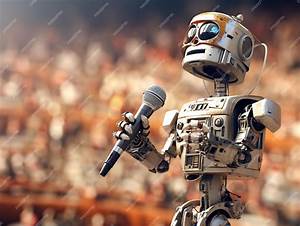For years, the fear was that AI would take over blue-collar work like factory jobs, trucking, warehouse labor. But hands-on blue collar jobs like plumbing, electrical work, construction and other hands-on jobs are AI-safe.
Today, creative entertainment professionals are under threat from AI. Screenwriters, editors, voice actors and visual artists are now seeing artificial intelligence creep into the entertainment industry and cutting into jobs and hours.
They’re seeing AI do what many thought only humans could. Studios and independent filmmakers alike are using AI tools across all stages of production. These entertainment professions, among others, are seeing real disruption:
Screenwriting
AI-powered tools generate scenes, outlines and dialogue polish.
Acting
Deepfakes and AI-generated characters are already in marketing and indie films.
Voice-over actors
AI voice cloning mimics actors’ voices for dubbing or recreating performances.
Visual effects and story-boarding
Machine learning speeds up or automates these labor-intensive tasks.
AI in the entertainment industry is no longer experimental — it’s operational. And it’s accelerating.
Writers and Actors Push Back Against AI
AI can’t be stopped completely, but massive industry push-back during the 2023 strikes slowed it down — for now.
The strikes weren’t entirely about AI, but artificial intelligence was a flash point that helped ignite and define the strikes. The unions stepped up when AI threatened to devalue both writers and performers.
Writers feared their scripts would be fed into AI systems and used to train competitors. Actors feared their faces and voices could be captured once and reused forever.
They weren’t just demanding better pay. They were fighting for control over their creative identities.

Where AI in Entertainment Is Headed Next
We’re already seeing short films built almost entirely with AI. A person with a laptop and an AI tool can:
- Type a story idea into a chatbot, and receive a rough draft in minutes
- Generate characters and environments with an image tool
- Clone voices to deliver dialogue
- Edit the result using automated video software
But how’s the quality? Well, basic for now. As artificial intelligence advances, the output continues to improve. Soon, one person could produce a compelling short film without hiring a crew.
Hollywood isn’t the only field being taken over by artificial intelligence. AI-generated content is creeping into:
- Advertising and branded content
- YouTube shorts and influencer media
- Podcasting and audio storytelling
- Indie video games and interactive fiction
A Wide Range of Fields Affected
AI in the entertainment industry affects far more than just movies and TV. Any job that involves storytelling, media production, or performance is in the risk zone. That includes:
- Journalists and news writers
- Copywriters and marketers
- Musicians and audio engineers
- Illustrators and comic artists
- Game designers and developers
Can Human Creativity Still Compete?
It can, but not by doing things the old way. Humans in creative fields need to level up, fast.
AI lacks emotional depth, cultural insight, and human intuition. But it’s getting better at imitating all of these traits. What it can’t do well, yet, is connect deeply — unless a human helps guide the process.
In this new creative world, the advantage goes to those who blend human creativity with AI speed and scalability. AI works so quickly, being “purely creative” might no longer be enough.
How to Stay Ahead in the AI Entertainment Shift
Here’s what you can do right now to stay competitive:
- Learn how to write effective prompts for the best AI results
- Understand what AI tools can and can’t do
- Use AI to handle busywork — those time-sucking repetitive chores, but not replace your core skills
- Follow and emulate studios, creators, and media platforms that are adopting the tech efficiently
Artificial intelligence is already transforming the entertainment industry. Fortunately, the unions have stepped up and won substantial protections for their members thanks to the 2023 strikes.
Here are the concessions, in brief:
️ WGA (Writers Guild of America) AI Protections:
No requirement to use AI: Employers cannot force writers to use AI (like ChatGPT) when writing or rewriting.
Writers can use AI if the company agrees: Writers may choose to use AI for writing help, but only with employer consent and as long as the AI use complies with the company’s policies.
AI can’t be credited: AI-generated material can’t be considered “literary material” — only humans get writing credit.
No AI training on writers’ work: The studios agreed not to use WGA-covered material to train AI models (at least for now), though enforcement of this will depend on legal/regulatory clarity.
SAG-AFTRA (Actors’ Union) AI Protections:
Informed consent for digital replicas: Studios must get clear, specific consent to create a digital replica of an actor (for example, scanning their face and voice).
Fair compensation: If a digital replica is used, the actor must be paid for that use — as if they performed.
Protection for background actors: Background actors also now require consent and payment if their likeness is scanned and reused.
Limits on reuse: Consent is tied to specific projects; producers can’t just scan you once and reuse you forever.
DGA (Directors Guild of America) received more limited AI protections
Consultation rights: Studios must consult with directors when AI is used in the production process, especially if it affects creative decisions.
No blanket ban, but a foot in the door for oversight.
Summary of AI Concessions Across All Three Unions:
AI can’t replace humans without permission.
No automatic reuse of digital likenesses.
Writers retain credit and ownership.
Some AI use allowed — but only as a tool, not a replacement.
Bottom Line: Several professions are safe for now, but Hollywood runs on margins and I expect AI will always tempt producers to cut corners.